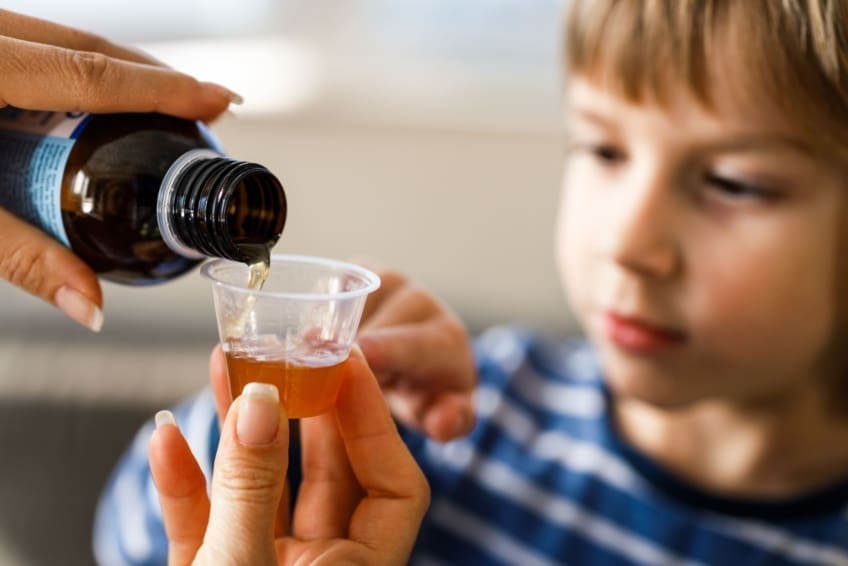
You can purchase over-the-counter (OTC) medicines for your child without a prescription from your doctor. However, that doesn’t mean these medicines are harmless. If they are taken the wrong way, they can make your child feel worse and can even be harmful. Read through this list of dos and don’ts to make sure you are giving your child OTC cough and cold medicine safely.
Dos
- Do learn how to read and understand all parts of the medicine’s drug facts label.
- Do look for a medicine that will treat only the symptoms your child has. For example, if your child only has a runny nose, don’t pick a medicine that also treats headache and fever.
- Do use the correct measuring device (for example, a spoon, syringe, or cup made for measuring medicine) when giving your child the correct dose.
- Do read the medicine’s label carefully. Take note of any special instructions, such as foods or activities your child should avoid while taking the medicine.
- Do make sure everyone who takes care of your child (such as school nurses, day care workers, extended family members, or babysitters) knows what medicines your child is taking and when their dosing schedule.
- Do store medicines in their original packages to keep track of important labels and expiration dates.
- Do store all medicines up and away, out of the sight and reach of young children.
- Do keep medicines in a cool, dry place. This will help prevent them from becoming less effective before their expiration dates.
Don’ts
- Don’t give OTC cough and cold medicines to a child younger than 4 years of age unless your child’s doctor says it’s okay.
- Don’t share your adult OTC medicine with your child. OTC medicines made just for adults can be harmful for children. Once your child is a teenager, they may be old enough and big enough to take adult OTC medicines, but check with your family doctor first.
- Don’t give aspirin or a medicine that contains aspirin (check the “active ingredients” section of the drug facts label) to a child younger than 18 years of age. Aspirin can cause a serious illness called Reye syndrome if it is given to children.
- Don’t combine prescription medicines with OTC medicines unless your child’s doctor says it’s okay.
- Don’t use more than 1 OTC cough and cold medicine at the same time unless your child’s doctor says it’s okay. They may have similar active ingredients that add up to be too much medicine. For example, many OTC medicines contain acetaminophen and antihistamines.
- Don’t use an OTC medicine after its expiration date.
- Don’t store medicines in bathrooms or bathroom cabinets, which are often hot and humid.
- Don’t wait too long to take your child to the doctor. Cold symptoms should get better quickly, and OTC medicines are only meant for short-term use. If your child has been taking an OTC medicine for several days and their symptoms seem to be getting worse, call your doctor.
- Don’t give your child cough or cold medicine just to make him or her sleepy. This is a side effect of some ingredients, such as antihistamines, in cough and cold medicines. If your child has trouble falling asleep, talk to your family doctor about other things you can do to help your child sleep better.
Questions to ask your doctor
- Should I ask my doctor which over-the-counter medicine to use before I give it to my child?
- Is expired medicine harmful or just ineffective?
- What side effects should I look for when giving my child over-the-counter medicine?
- Are generics okay to use?
Resources
U. S. Food and Drug Administration: Should You Give Kids Medicine for Coughs and Colds?
National Institutes of Health, MedlinePlus: Medicines and Children
![]()
Copyright © American Academy of Family Physicians
This information provides a general overview and may not apply to everyone. Talk to your family doctor to find out if this information applies to you and to get more information on this subject.







